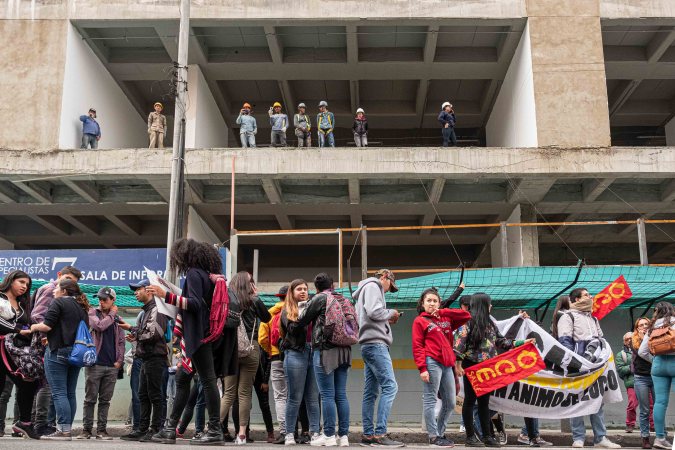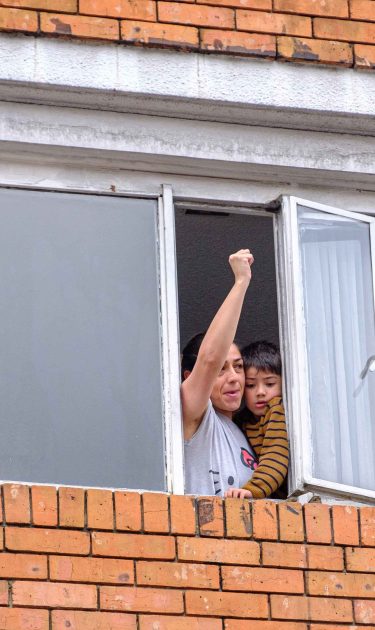It’s night and the street is beating. The sounds of police sirens and helicopters were silenced by a massive cacerolazo that is heard throughout the city.
As Latin America rose up with mobilizations against the governments in Chile, Ecuador, Bolivia and Puerto Rico, Colombians planned a massive national strike for November 21 – a march announced a month ago and known as #21N, in which different sectors joined to show their disapproval of President Iván Duque’s policies. Hundreds of thousands took to the streets throughout the country for several reasons, including labor and pension reform, the privatization of public companies, the government’s breach of the Peace Accords, the breach of the agreements with the students, the systematic murder of social leaders, gender violence and the bombing of the National Army (where at least 18 children in Caquetá died). Many have failed the Colombian people and tested their dignity.
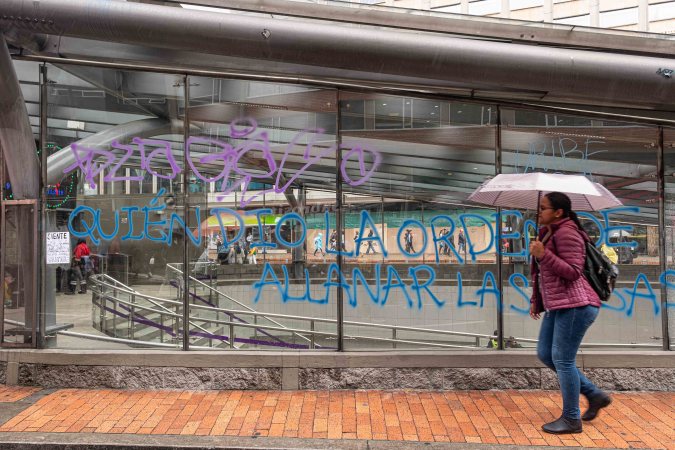
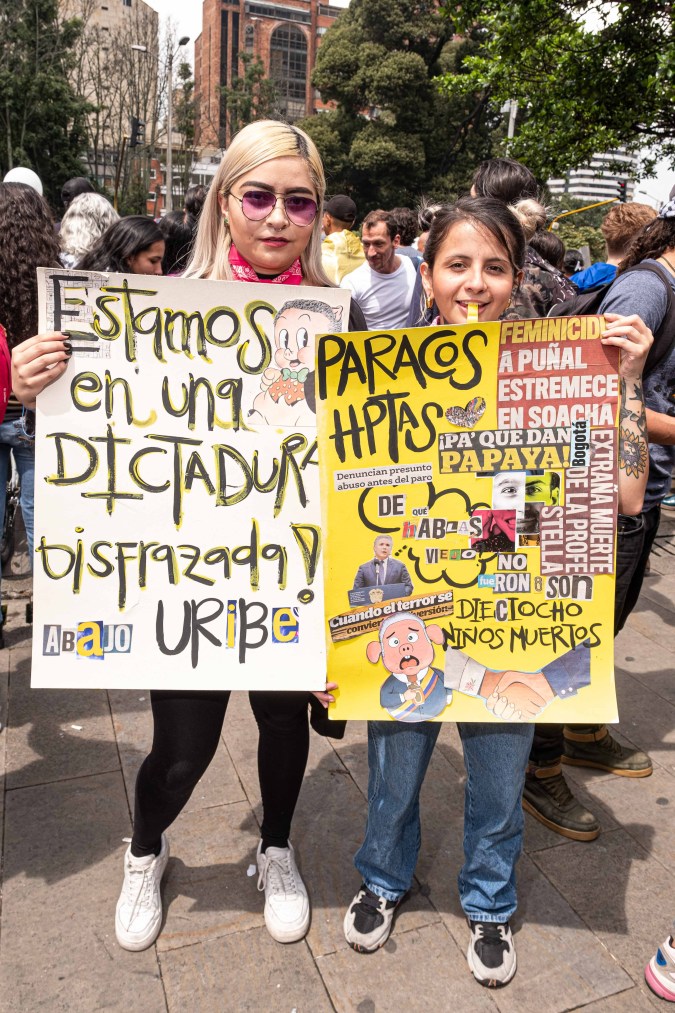
The #21N march finally arrived as a shout of relief. From early in the morning, the streets of the main Colombian cities received people anxious to make their struggles heard, a town tired of repression by the state every time it manifests itself, a town with no more weapons to face inequality and invisibility of their causes than their voices, their hands and their instruments that rumbled like a hug of common resistance. In Bogotá, a group of musicians and artists of different genres united under the initiative #ElParoSuena heated the spirits with a song:
“Es bonita y es bonita la resistencia
¡Nos movemos!
Cantemos por una vida sin tanto miedo
¡Por el pueblo!
Queremos que se respeten nuestros derechos
¡Nos movemos!
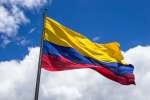
Por los niños y las niñas de nuestra tierra
¡Por el pueblo!”
We joined a group of people marching for various causes until we became like a great river of people singing and protesting in peace. On this first day of a strike that promised to extend for days, we spoke to Colombian musicians and other young people about why they took to the streets to protest.
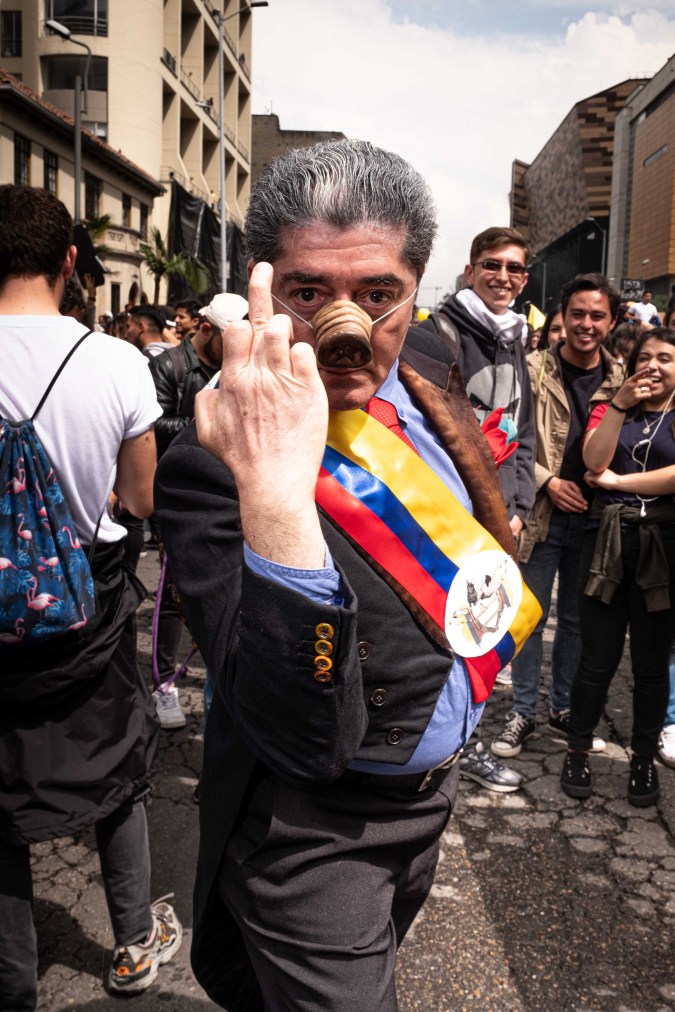
Cer-Duque, self-proclaimed sub-president of Colombia
“¿De qué me hablas, viejo?”
(This phrase refers to the statements of President Iván Duque who, when asked by a journalist about the bombing of a FARC dissidents camp in which 18 children died, replied: “What are you talking about, man?)
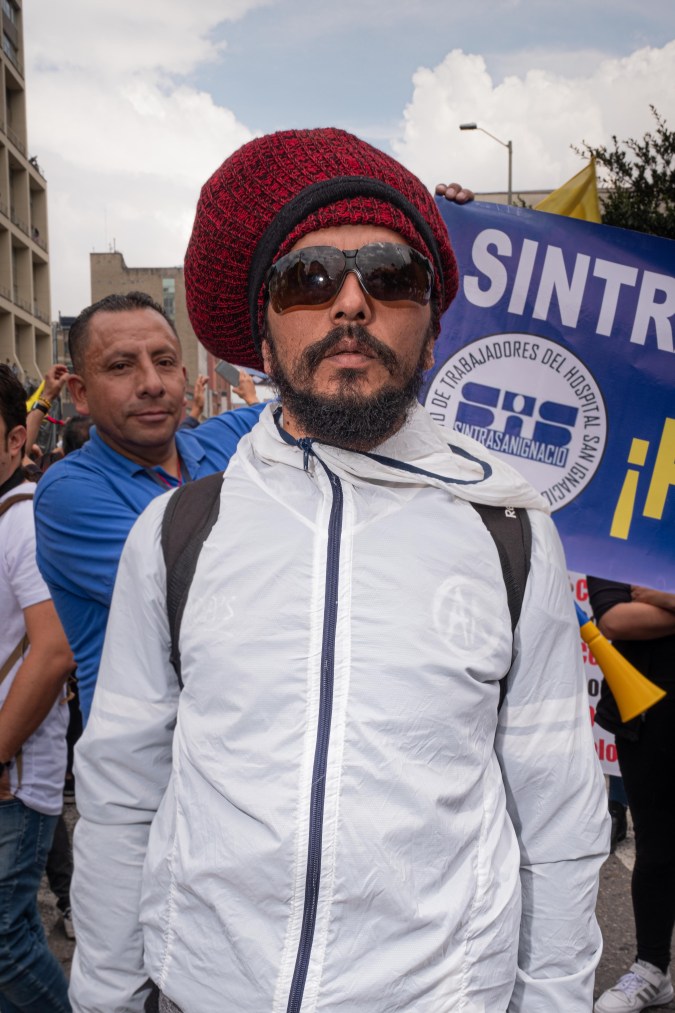
Javier, musician (Leader of Alerta Kamarada)
“Today we march for life, for peace, for the respect of the Colombian people and their dignity.”
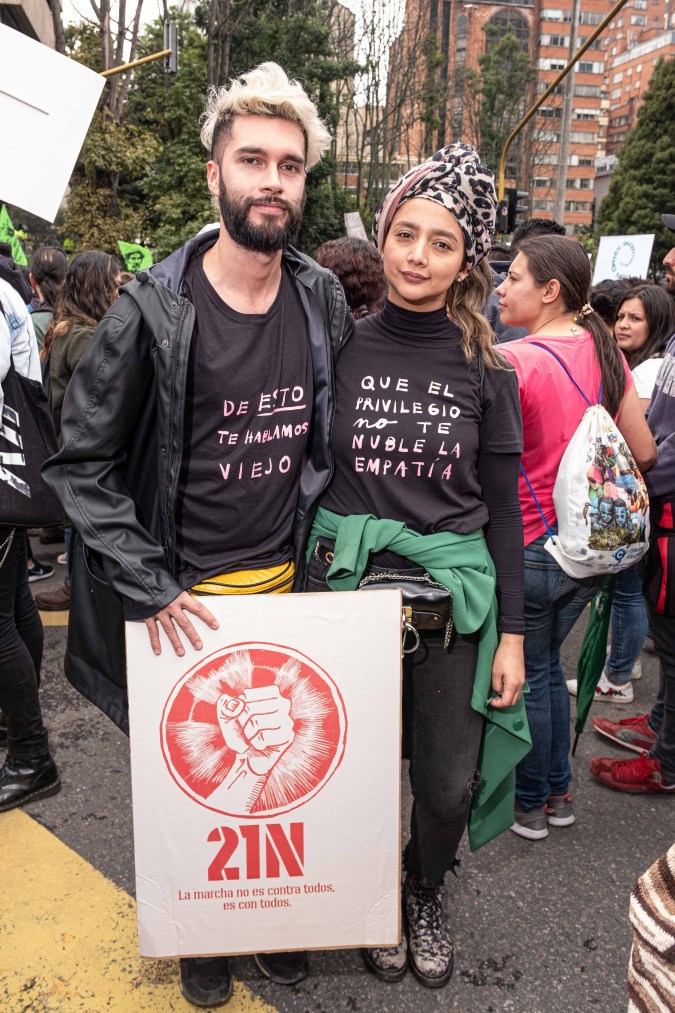
Nane, musician & Adriana, social communicator
Adriana: “Today we march because we feel we have to touch each other a little, there doesn’t have to be indifference. We have a sign that says, ‘We are not marching against everyone, we are all marching.’ And we feel that we are all, it is the mother, the grandfather, it is the field where you are going on your vacations. Many injustices have passed over time and the only way to change it is to go out, move and pinch ourselves and know that it depends on everyone.”
Nane: “It is very important to be empathic. This has been a country that has always been concerned with individualization. We are beings who think only in our circle and in our people and do not think about the problems that are experienced throughout our territory. It is very important to know that everyone has a reason to fight, to get out. We know that things are not right and it is our right to go out on the streets and make ourselves heard, when we do we know that we are not alone and that there is a voice that becomes common like that of thousands that we meet here.”
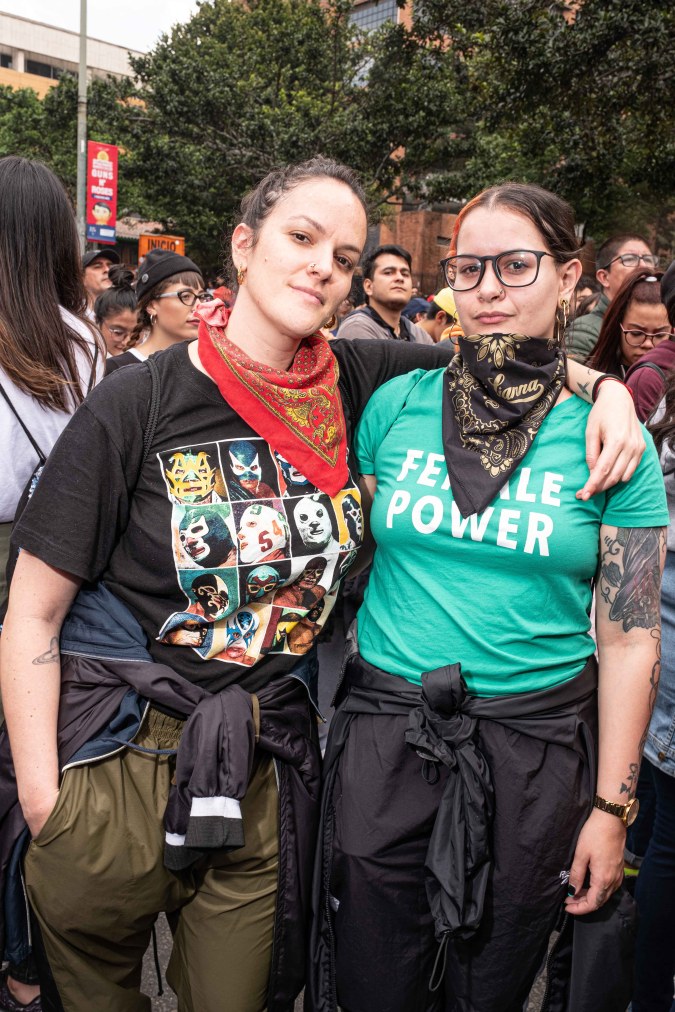
Lianna, musician
“We are marching because this government is bullsh*t, because they are killing everyone: They want to end the countryside, with the peasants, with the natives, because they are miserable.”
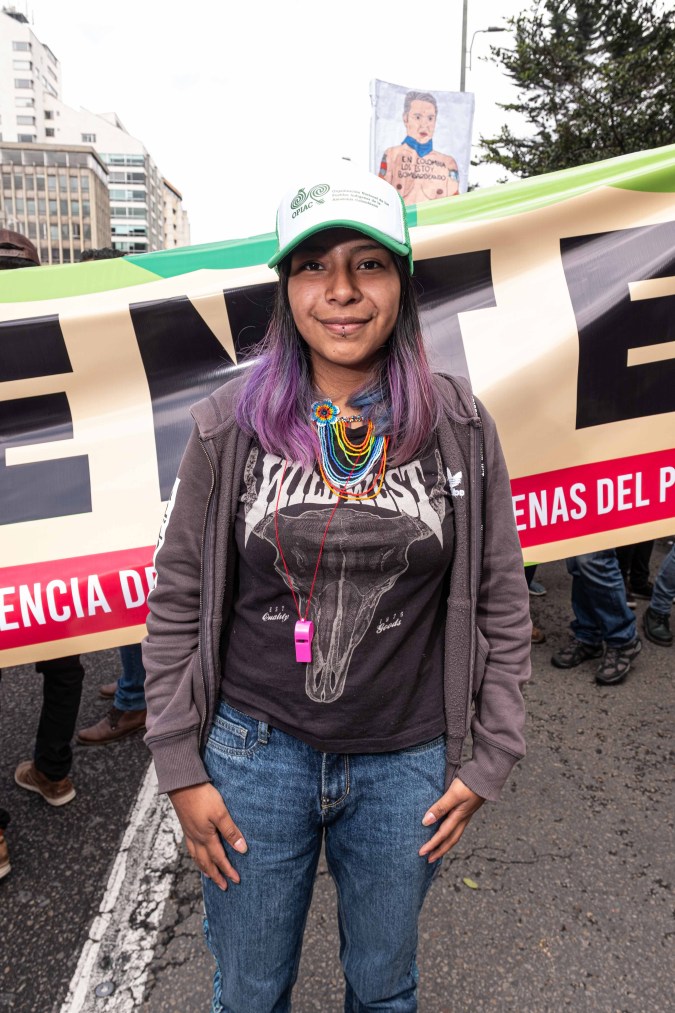
Tayira, student
“I am a student. I am indigenous. I am a woman. I am human, and I’m from Colombia. I march so that our call for rights is heard, and so that the oppressive government listens to us and knows that the people are united to make this oppressive government fall.”
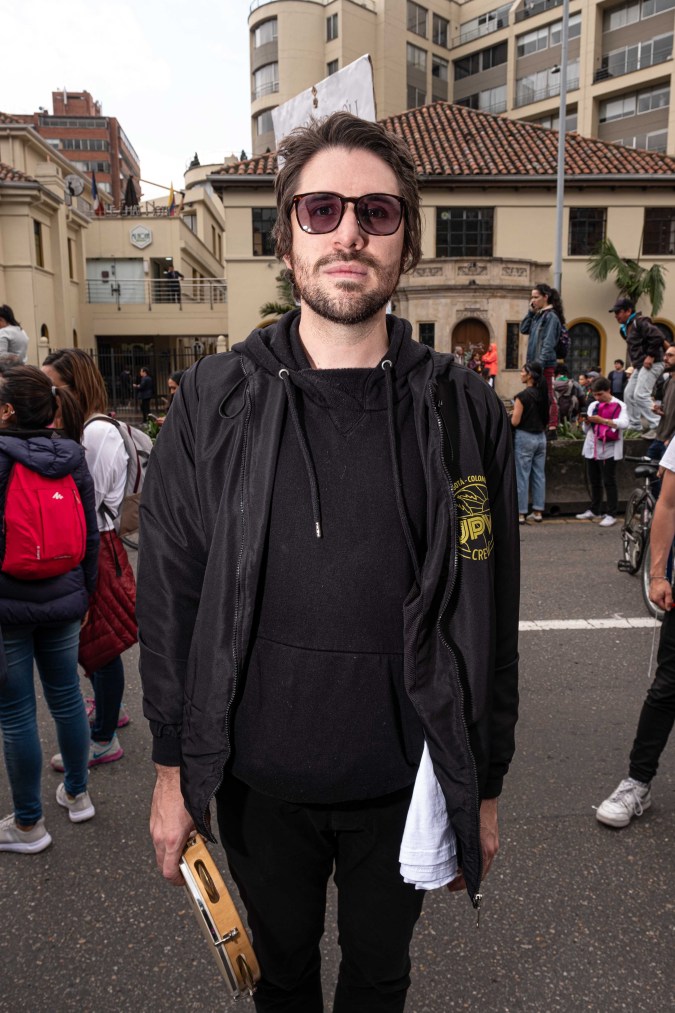
Juan Pablo Vega, musician and producer
“I march because I am against a permissive government with violence, which threatens its own people. I think that Colombians are already tired of this government that has been eternal. About 20 years have passed, so here we are putting our voice in the struggle and highlighting the collective unity between brothers and sisters.”
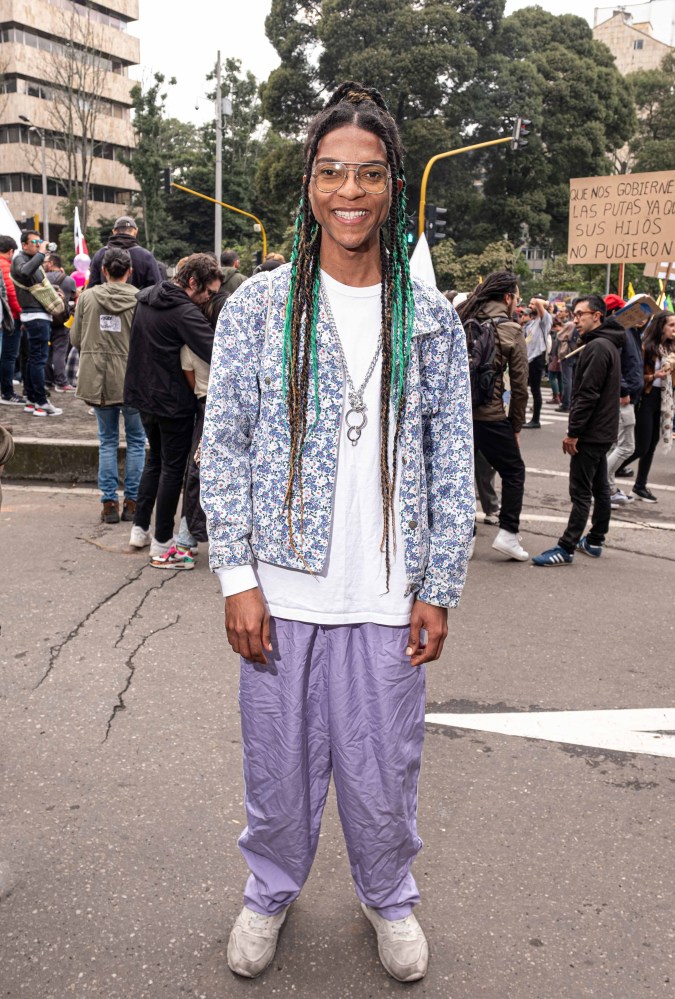
“Lo más bello,” artist
“Two days ago, I received the news that a close friend was murdered by her partner, so I went out to march for her and for us. Also by my companions of the Trans-diverse movement who are systematically murdered in the country, in Latin America, in the world, and nobody seems to care. There are many reasons we have to go on the march, but the main one is the right to demonstrate peacefully, have a voice to say that we are against a government that is oppressing our rights and the priorities that the people have.”
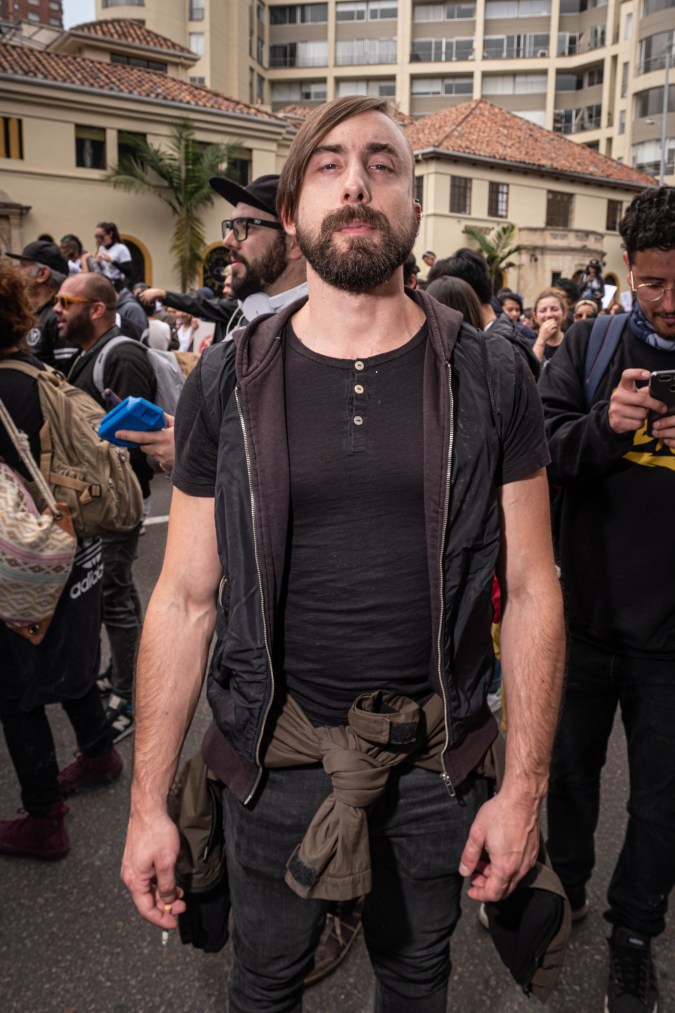
Juan David, musician
“Artists and young people are marching today for the general disconformity. There are many points that come together. I march for corruption. I’m tired of that sh*t, but there is also the issue of missing social leaders, of the murders, all the sh*t that is going on. Musicians are marching for better conditions as musicians, as artists and for freedom of expression.”
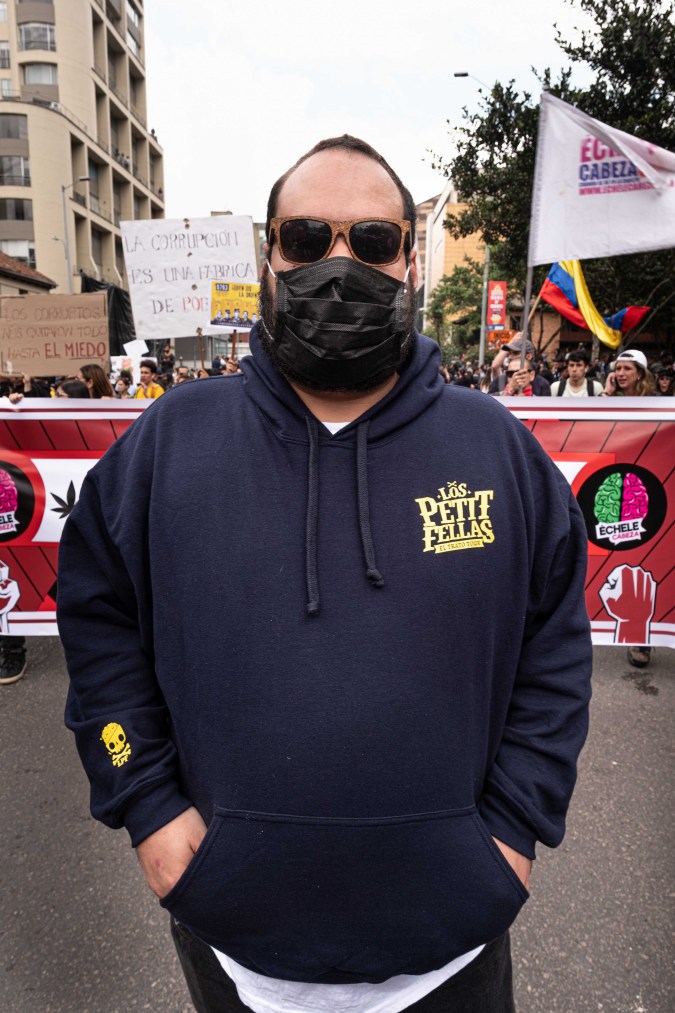
Fat Sugar Daddy, artist (El Freaky)
“We can no longer be indifferent to what is happening. In the cultural sector particularly, there are state policies that do not benefit the artistic creation nor the promotion of projects, even knowing that was the president’s platform on his campaign. On the other hand, it’s empathy and solidarity with everything that is happening: the murder of social leaders, the misgovernment, the abuses of power… It is not time to remain silent. We make party music because the dance is also political and we have to be here celebrating.”
Oriana and Johanna, students
Oriana: “I am marching today for myself, for you, for my parents, for my family and for all the people of Colombia. No more injustices can be allowed. We are in a dictatorship in disguise.”
Johanna: “Because we are tired of uribismo, how they handle us all the time, because the salary is not fair to anyone and the conditions for us young people are getting worse.”
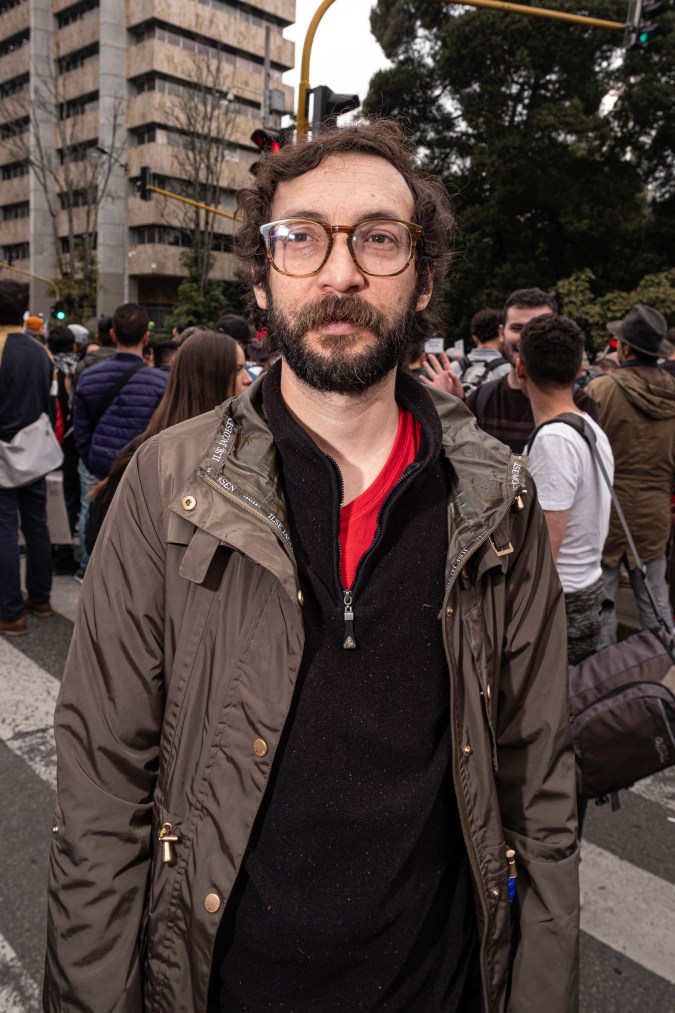
Eblis Álvarez, musician (Los Pirañas, meridian Brothers, Chúpame el dedo)
“There is no other option. This is one of the few alternatives that we have left to manifest dissatisfaction with what is coming over us, which is not only in Colombia but worldwide.”
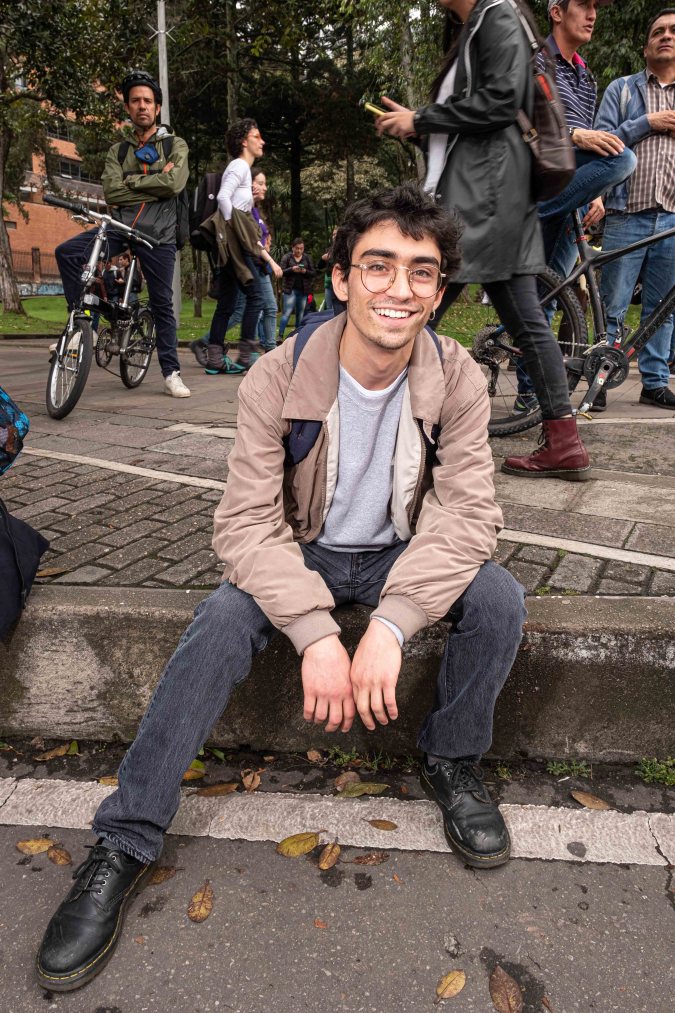
Juan Antonio, music journalist
“Everyone is tired of how the last governments have been, especially the present and the uribismo that has permeated the last 20 years or more, in Colombia. Something that seems very important to me is that so far the patch of musicians have been active in creating political or critical content in the face of this situation. That the patch of musicians is gathering to march and be active in the face of this is very important because, like the students or the workers, they are saying, ‘We are also looking for change in the country.'”
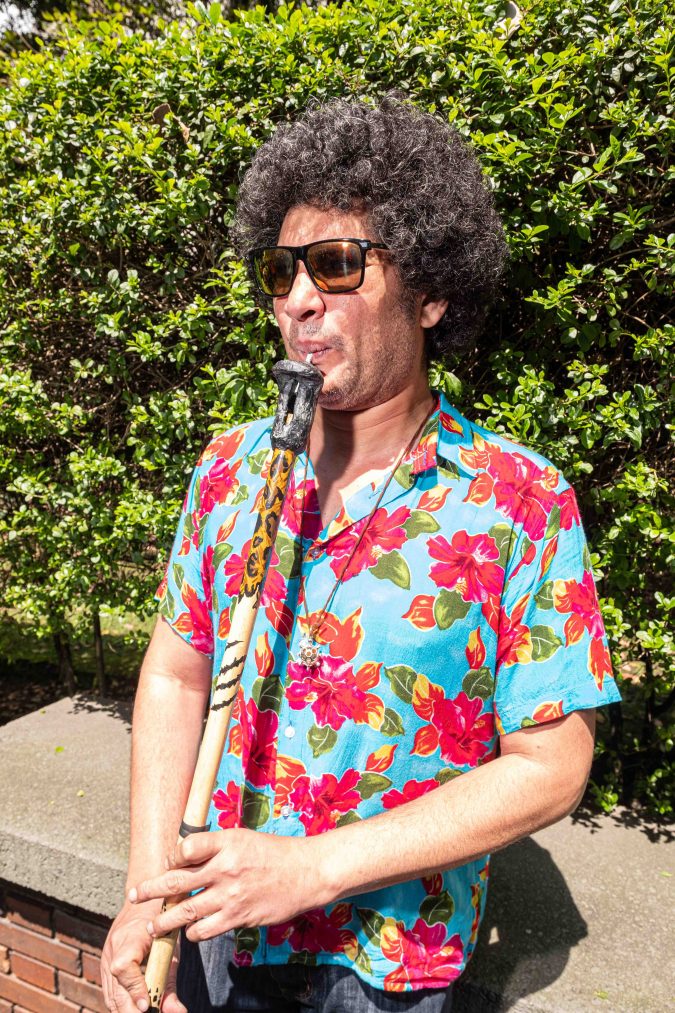
Pernett, musician
“Today, even the Catholic church came out to march here in Colombia, because the government is totally wrong. We are experiencing a series of problems that we did not have before. Right now the great part of the independent artists in Colombia, we have to pay an immense amount of taxes and to be able to work and it becomes increasingly difficult everyday. But there are really countless reasons: the murder of social leaders, the murder of leaders in Cauca, the murder of Afro-Latino leaders. We are talking about the fact that they have dried up rivers, that they sell paramos, they do a series of things that are absurd and that nobody gets it in their head. Today, we all go out because we have to demonstrate that we disagree with all these things.”
